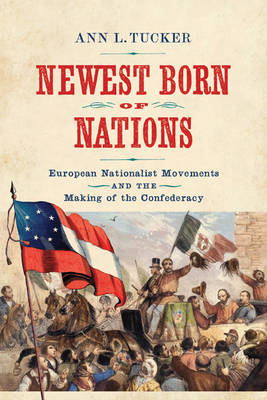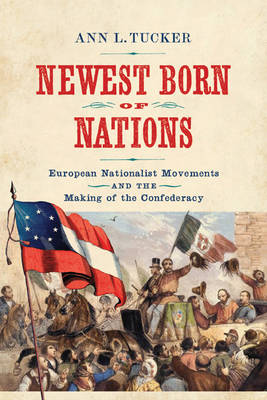
- Retrait gratuit dans votre magasin Club
- 7.000.000 titres dans notre catalogue
- Payer en toute sécurité
- Toujours un magasin près de chez vous
- Retrait gratuit dans votre magasin Club
- 7.000.0000 titres dans notre catalogue
- Payer en toute sécurité
- Toujours un magasin près de chez vous
Newest Born of Nations
European Nationalist Movements and the Making of the Confederacy
Ann L TuckerDescription
CHOICE Outstanding Academic Title, American Library Association (2021)
From the earliest stirrings of southern nationalism to the defeat of the Confederacy, analysis of European nationalist movements played a critical role in how southerners thought about their new southern nation. Southerners argued that because the Confederate nation was cast in the same mold as its European counterparts, it deserved independence. In Newest Born of Nations, Ann Tucker utilizes print sources such as newspapers and magazines to reveal how elite white southerners developed an international perspective on nationhood that helped them clarify their own national values, conceive of the South as distinct from the North, and ultimately define and legitimize the Confederacy.
While popular at home, claims to equivalency with European nations failed to resonate with Europeans and northerners, who viewed slavery as incompatible with liberal nationalism. Forced to reevaluate their claims about the international place of southern nationalism, some southerners redoubled their attempts to place the Confederacy within the broader trends of nineteenth-century nationalism. More conservative southerners took a different tack, emphasizing the distinctiveness of their nationalism, claiming that the Confederacy actually purified nationalism through slavery. Southern Unionists likewise internationalized their case for national unity. By examining the evolution of and variation within these international perspectives, Tucker reveals the making of a southern nationhood to be a complex, contested process.
Spécifications
Parties prenantes
- Auteur(s) :
- Editeur:
Contenu
- Nombre de pages :
- 272
- Langue:
- Anglais
- Collection :
Caractéristiques
- EAN:
- 9780813944289
- Date de parution :
- 29-06-20
- Format:
- Livre relié
- Format numérique:
- Genaaid
- Dimensions :
- 160 mm x 234 mm
- Poids :
- 498 g

Les avis
Nous publions uniquement les avis qui respectent les conditions requises. Consultez nos conditions pour les avis.






